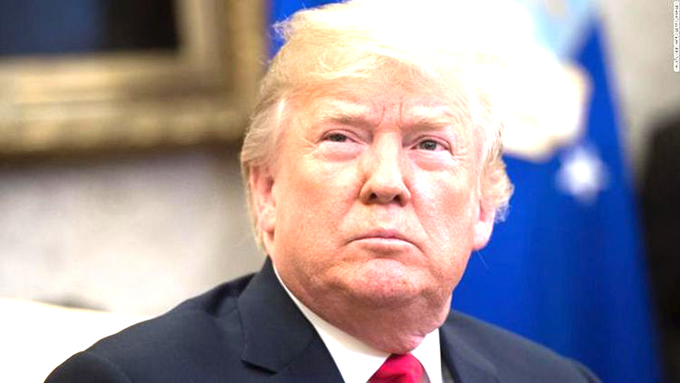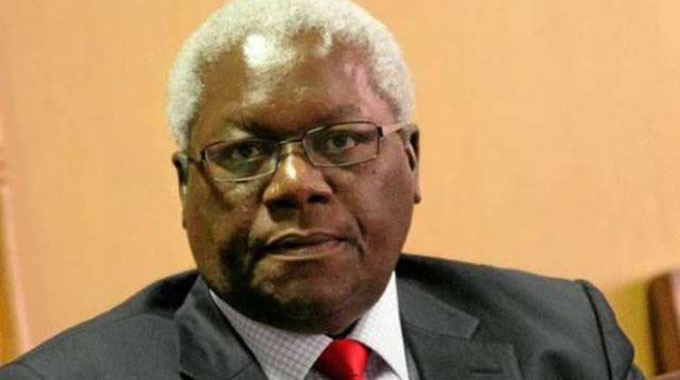Zim can draw many lessons from China

Donald Rushambwa Correspondent
Over the years, the government of the People’s Republic of China has implemented counter-terrorism and extremism measures in the autonomous region of Xinjiang.
These measures have proven to be effective and developmental to the people of Xinjiang who had deeply suffered from terrorism and extremism for the past two decades.
Some of these measures have managed to bring peace, security and development to the region and developing countries can borrow such measures for the development of their countries.
Vocational Training
Vocational training in re-education camps has proven to be developmental to the region as it has managed to bring peace and security.
Economic development can also be attributed to this initiative as the people who attend the training come out with special skills which they can use to sustain their livelihoods and develop the economy of the region.
Economic emancipation and reduction of poverty is one of President Xi Jinping’s millennial goals.
In 2015, President Xi set a deadline of 2020 to eradicate poverty in China, with 850 million Chinese taken out of extreme poverty in the past 40 years.
According to State Councillor and Foreign Affairs Minister Wang Yi, in the past 64 years since the region was established, the local economy has grown by 80 times and tens of thousands of local people have been lifted out of poverty.
Likewise, the Zimbabwean Government, in the past, has initiated similar projects in an effort of bringing peace, security and development to the nation.
In 2001, it introduced the National Youth Service, targeting youths from the ages of 10 to 30.
Its stated purpose was to transform and empower youths for nation-building through life skills training and leadership development.
It also sought to inculcate national values, ethos and ethics into the youths, thereby bringing peace, security and development to the nation.
To this day, many vocational training facilities have been opened to help Zimbabweans earn a living through various skills.
Such training facilities include Msasa Vocational Training Centre, Kaguvi Vocational Training Centre and Chitungwiza Vocational Training Centre.
Religious Freedom
The Xinjiang Uyghur Autonomous Region is largely Muslim and because of this initiative, the region has enjoyed harmony amongst its different ethnic groups.
The Chinese government has done a good job in not marginalising any minority group and has taken further steps to help them achieve religious freedom by erecting several mosques in the region for those of Muslim faith.
According to the Foreign Ministry of China, there are now over 28 000 religious sites in Xinjiang, and close to 30 000 clerical personnel. Both figures have increased 10-fold compared with several decades ago.
Nowadays, every 530 Muslim people in Xinjiang have a mosque on average, which is higher than many Muslim countries.
In Zimbabwe, the Muslim faith has a limited number of believers compared to other countries in Southern Africa.
The Muslim community accounts for 0.5 percent of the total population, with Christianity being the dominant religion with 84.1 percent of the total population in Zimbabwe.
However, Zimbabwe guarantees freedom of religion or belief. Section 60 of the Constitution of Zimbabwe stipulates that every person has the right to freedom of religion or belief.
The Government of Zimbabwe supports all religious sectors in any possible way. When a new city/town/residence is being planned, there is always land that is reserved for church/mosque construction.
Zimbabwe can draw lessons from China that helps its religions to build infrastructure that is vital for them to conduct their clerical services. Allocating land alone is not enough as religious sectors rely on their congregants for funds to build the infrastructure.
Loan facilities by the Government should be put in place for the religious sector so that they can be an upward trajectory in construction of religious shrines so that citizens can exercise their right fully.
Citizens Learning the National Language
In these training centres the residents of Xinjiang are taught Mandarin. Mandarin is the official language of the People’s Republic of China.
It is widely used across China and other regions of the World. It is fast becoming the most widely used language after English, French and Spanish.
The move by the Chinese government to teach the residents of Xinjiang Mandarin is developmental to the region as the beneficiaries of these lectures will be able to communicate better with other regions in China.
This will also be advantageous to them as they will be able to now be employed outside Xinjiang because they can now effectively communicate.
Learning a widely used language is of paramount importance as various opportunities arise by virtue of you knowing how to converse in that language.
China is taking its business to every part of the world and being able to speak Mandarin is an added advantage on one’s Curriculum Vitae.
Zimbabwe has also undertaken a similar drive in teaching Shona and Ndebele, Zimbabwe’s national local languages, to all its primary and high school students.
While English remains the official language, Shona and Ndebele remain the widely used local dialects.
The Government has implemented these measures to preserve the language and culture of the country.
This is a positive initiative as it promotes national ethos and heritage. Our language and culture determine who we are as a people and introducing it to schoolchildren makes them patriotic citizens from a tender age.
A variety of thematic issues can arise from the analysis of Xinjiang and the measures it has been implementing in the past decade to counter terrorism.
Some of these issues include the importance or disadvantage of surveillance on citizens, freedom of association, human rights, global counter-terrorism efforts and the impact of sanctions on the development of a nation.









Comments